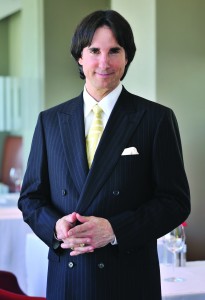Finding Meaning in What You Do
Do we believe that our current career path is set for the rest of our life, or is it just a temporary stepping stone or stage towards something even more meaningful?
Each one of us has an evolving set of needs, values, or priorities in our life that we would love to satisfy, fulfill, or meet. These values are derived from what each of us perceives at any one moment to be partly or wholly missing in our lives. Whatever is highest on your list of values is what you are spontaneously inspired from within to want to fulfill most. Our highest value has been called our purpose, our chief aim, our primary cause, our “telos,” or our pathway of self-actualization and full individualization. It is what we are most committed to and what we can’t wait to get up in the morning and do and fulfill.
There have been some individuals who have had a highly fulfilling career path for decades and then as their values evolved they veered off into a slightly or radically new direction to fulfill the next phase of their lives. There have been others who have remained dedicated to their primary cause for their entire living existence (as in the case of some Nobel Prize winners). As our highest values evolve, so too can our career paths. Our hierarchy of values dictates how we perceive, decide, and act upon the world and therefore dictates our career destiny. But our overall life’s journey can be filled with one or more destinies along the way.
I have been inspired for 43 years to research, write, travel, and teach globally and will probably do this for my remaining years. But a dear friend of mine who is about a century young has had five incredibly meaningful and inspiring career paths — all of which have been fulfilling and had global impact. It is wise for each of us to identify what is truly most important and highest on our set of
values, and then prioritize our lives in such a way that we are able to fulfill our chosen career path. By finding out what the world needs most and where this great need overlaps our own highest value(s), we will find our special niche, or niches of service to the world. If we still have to ask whether this is the path for us, then it is not. When we have found it, we will know, because then we can’t wait to get up in the morning and do what we love most each day.

If we feel there is something more in store for our life, what do we do?
Nobody else is going to get up each morning and dedicate their lives to our ongoing career or life fulfillment. That job is our own. It is not about hoping, or praying, or wishing that something on the outside of us is going to miraculously help us determine and
achieve whatever is next. No, we must take command and identify
what is truly most important to us now. Then we structure our lives in a highly prioritized manner and take specific productive actions that will increase the probability of achieving and fulfilling that goal.
We may have to forge a new path to whatever this may be. It might not be an existing career. It might be some new and original service to the world. The world is evolving and we are capable of creating original ideas, products, or services that serve the world. Now is the time to ask ourselves: What do we value most? What is it
that our lives demonstrate that we are truly committed to and inspired by? What is it that we spontaneously love doing each day that could serve others? What is it that has consistently inspired us, or is common to the people who have inspired us? The quality of our lives is based upon the quality of the questions we ask. The quality of our singular or multiple career path(s) is based upon the answers we provide.
How do we know if our feelings of boredom and dissatisfaction are temporary or a message to move on?
No job or career has only ease without difficulties, supportive elements without challenges, or positives without negatives. All career paths contain a synthesis of both, like the two poles of any magnet. It is not our career path that is so much our concern, it is our perceptions of our career path. We have command over our perceptions and actions. It is wise for us to either go and do what we love — that is, what is most meaningful — through delegating all things not of highest priority. We also must ask ourselves: How specifically is each of my
current job responsibilities helping me fulfill my newly-desired and more meaningful career path? How is it on the way and not in the way? What skills, talents, contacts, or opportunities is it providing me along my new way?
By making the links of how what we are currently doing is helping us do what we would love to be doing, we liberate ourselves from the weighted frustration of being caught in a job that is temporarily unfulfilling. Either we are to go and do what we love, or temporarily love what we do. It is wisest to take command of our perceptions and appreciate how our current career is acting as an essential stepping stone to our newly-desired dream career.

Can unfulfillment in our current career affect our entire lives?
Bitching about an unfulfilling career is pointless. Instead, take command. Remember that you have command over your perceptions, decisions, and actions. When we transform our perceptions and actions, we transform our lives and our careers. All the so-called unfulfilling symptoms we may be experiencing are the result of us not doing what we love, nor loving what we do. They are simply feedback systems to let us know that we are not yet seeing how what we are currently doing is serving us, and how we are not yet prioritizing our daily actions toward what we would love. When we are not fulfilled because of our perceptions and actions, our whole life lets us know it. All of our symptoms are attempting to guide us back to do what we would truly love.
What are the first realistic steps to finding a career path we would truly love?
It is important to first get clear on exactly what we would love to do. Not some fantasy or whim, but something that our lives spontaneously demonstrate is meaningful and important to us and that could also in some way serve others. Looking at what has inspired us in the recent or distant past is a great starting place. Asking ourselves: What is it that we would love to make a difference in? What products, services, or ideas do people in the world truly need that we would love to provide and fulfill? What is it that we simply spontaneously do each day that nobody has to remind us to do that we could turn into a career path? What would I love to do each day and how could I get handsomely or beautifully paid to do it?
When weighing up leaving our current career for another, what are we to do?
It is wise for us to be grateful for whatever careers we have had along our way. Each career has offered us skills, contacts, knowledge, insights to ourselves, confirmation on what we love and don’t love, management insights and possibly savings along the way. Then we can start a list of what we know we would love to do and master plan our new career path until we are clear on our strategy of transition. It is usually unwise to just leap without a net, or without some viable, well thought out career or business plan, and more fulfilling to simply appreciate how what we are doing is actually helping us make this transition. There is nothing unwise about working extra hours initially while fading from one into the other.
Follow a continually evolving strategic plan. If we fill our days with high priority actions that inspire us, our lives won’t keep filling up with low priority distractions that don’t. Then it is most fulfilling to finally use this appreciative energy to catalyze even more high priority actions towards fulfilling our new and more meaningful dream careers. And if you already have your dream career (or careers), be thankful for what you have achieved. For nearly forty years I have affirmed daily that I do what I love and love what I do.
And I am grateful.
Dr. John Demartini is the founder and CEO of the Demartini Institute, a human behavior specialist, internationally-published author, educator and consultant.
For more information, visit Drdemartini.com.



